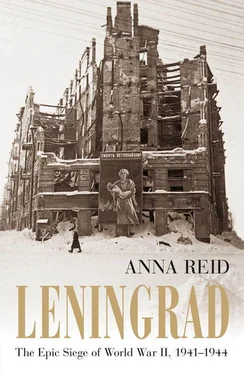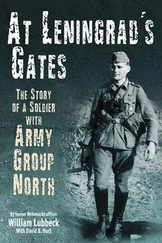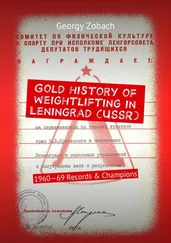In the Kremlin, apprehension still vied with denial. The German Foreign Ministry, the Berlin embassy reported, was refusing to take its half-hourly calls. Sometime in the late evening the commissar for defence, General Semen Timoshenko, rang Stalin with the news from the German deserters, at which Stalin ordered him to assemble an emergency meeting of Politburo members and senior generals. On their arrival he paused in his pacing and asked, ‘Well, what now?’ Timoshenko and the chief of staff, General Georgi Zhukov, insisted that all frontier troops should be put on full battle alert. Stalin disagreed: ‘It would be premature to issue that order now. It might still be possible to settle the situation by peaceful means… The border units must not allow themselves to be provoked into anything that might cause difficulties.’ At half past midnight he finally allowed the order to go through—prefaced by a warning that the attacks might only be provocations, and calling for a ‘disguised’ response. The meeting broke up at 3 a.m. An hour later Stalin had just gone to bed when he received a call from Zhukov. The major cities of the western Soviet Union—Kiev, Minsk, Vilnius, Sevastopol—were being bombed. ‘Did you understand what I said, Comrade Stalin?’ asked Zhukov. He had to repeat himself before he got a reply. War, even Stalin had to acknowledge, had begun. {11} 11 Dmitri Volkogonov, Stalin: Triumph and Tragedy , pp. 401–2; Mawdsley, Thunder in the East , p. 37.
The first rule of foreign policy, the dinner-party truism has it, is never to invade Russia. Why did Hitler, very conscious of the disaster that befell Napoleon there, decide to attack the Soviet Union?
His aims, from the campaign’s inception in 1940, were not those of conventional geopolitics. He did not want just to annexe useful territory and create a new balance of power, but to wipe out a culture and an ideology, if necessary a race. His vision for the newly conquered territories, as expounded over meals at his various wartime headquarters, was of a thousand-mile-wide Reich stretching from Berlin to Archangel on the White Sea and Astrakhan on the Caspian. ‘The whole area’, he harangued his architect Albert Speer,
must cease to be Asiatic steppe, it must be Europeanized! The Reich peasants will live on handsome, spacious farms; the German authorities in marvellous buildings, the governors in palaces. Around each town there will be a belt of delightful villages, 30–40km deep, connected by the best roads. What exists beyond that will be another world, in which we mean to let the Russians live as they like. {12} 12 Hugh Trevor-Roper, ed., Hitler’s Table Talk 1941–1944 , p. 24.
Existing cities were to be stripped of their valuables and destroyed (Moscow was to be replaced with an artificial lake), and the delightful new villages populated with Aryan settlers imported from Scandinavia and America. Within twenty years, Hitler dreamed, they would number twenty million. Russians—lowest of the Slavs—were to be deported to Siberia, reduced to serfdom, or simply exterminated, like the native tribes of America. Putting down any lingering Russian resistance would serve merely as sporting exercise. ‘Every few years’, Speer remembered, ‘Hitler planned to lead a small campaign beyond the Urals, so as to demonstrate the authority of the Reich and keep the military preparedness of the German army at a high level.’ As a later SS planning document put it, the Reich’s ever-mobile eastern marches, like the British Raj’s North-West Frontier, would ‘keep Germany young’.
So surreal is this vision, so risible in its bar-room sweep and shallowness, that it is tempting not to take it seriously. What was the sense in occupying a country so as to destroy it? Where was the money for the new roads and cities to come from? The millions of willing settlers? The troops to hold half a continent in permanent slavery? For the Nazi leadership, though, it was no daydream. In July 1940, weeks after the fall of France, Hitler ordered the commander-in-chief of the army, Field Marshal Walther von Brauchitsch, and his military chief of staff, General Franz Halder, to start planning the conquest of the Soviet Union. Britain, Hitler argued, could not be invaded for the present, and the only way to persuade her to see reason and make peace was to eliminate the last continental power inherently hostile to the Reich. Brauchitsch and Halder were unconvinced (though less so than Halder claimed post-war), preferring to see Britain knocked out of the war first. (‘Barbarossa’, Halder wrote in his diary on 28 January 1941. ‘Purpose not clear. We don’t hit the British that way… Risk in the west must not be underestimated. It’s possible that Italy collapses following the loss of her colonies, and we get a southern front in Spain, Italy and Greece. If we are then tied up in Russia, a bad situation will be made worse.’ {13} 13 Charles Burdick and Hans-Adolf Jacobsen, eds, The Halder War Diary, 1939–1942 , p. 313.
) Equally doubtful was Foreign Minister Joachim von Ribbentrop, who regarded the pact with Molotov as his greatest achievement, and pointed out that the USSR was still punctiliously honouring its promises to supply grain and other commodities. Hermann Goering, head of economic planning and the second most powerful man in the Reich, worried about shortages of food and labour. But Hitler was at the height of his popularity and prestige, and used to browbeating subordinates: the waverers swallowed their doubts and accepted the inevitable. The only member of the leadership to take decisive action over the issue was the unstable Rudolf Hess, who made his bizarre flight to Scotland just six weeks before the invasion, apparently in hope of preventing a two-front war by negotiating peace with Britain.
The plan for Barbarossa was completed in December 1940, and a launch date set of 15 May 1941. Both date and design soon changed (Italy’s calls for help in Greece and Libya forced a delay, and a two-pronged attack turned into a three-pronged one), but from its conception, the campaign was to be conducted with unprecedented harshness, a policy to which the army put up shamefully little objection. ‘This war’, wrote Halder after a two-and-a-half-hour address by the Führer to his assembled generals on 30 March, ‘will be very different from the war in the west… Commanders must make the sacrifice of overcoming their personal scruples.’ In June High Command itself instigated the notorious ‘Commissar Order’, under which captured political officers were to be shot out of hand. Further orders authorised ‘collective measures’ against civilians ‘who participate or want to participate in hostile acts’, and removed military courts’ right to try crimes—including rape and murder—committed by German soldiers against Soviet civilians. Individual officers were effectively freed to treat the Russians they came across as they saw fit. Also assumed from the outset was ruthless food requisitioning. The occupying troops were to live off what they could commandeer locally, even if it meant that civilians starved. ‘The Russian has stood poverty for centuries!’ joked Herbert Backe, state secretary in the Ministry for Food and Agriculture. ‘His stomach is flexible, hence no false pity!’ Goebbels quipped that the Russians would have to ‘eat their Cossack saddles’; Goering predicted ‘the biggest mass death in Europe since the Thirty Years War’. {14} 14 Mawdsley, Thunder in the East , p. 11; Antony Beevor, Stalingrad , pp. 14–15; Mark Mazower, Hitler’s Empire: Nazi Rule in Occupied Europe , pp. 142, 147.
Most of all, the Bolsheviks were to be beaten quickly. This was to be a Blitzkrieg , or ‘lightning war’, of swift onward movement led by tanks and motorised infantry. The army should not wait to capture every centre of resistance on its race east, and above all it should not get bogged down in the sort of static, attritional fighting that had lost it the war of 1914–18. In all, the campaign was to take no more than three months; the first few weeks in major battles destroying the Red Army, the rest in mopping-up operations. Once conquered, the whole of European Russia would swiftly be transferred to civilian rule under four new Reichskommissariats, allowing most troops to come home.
Читать дальше











